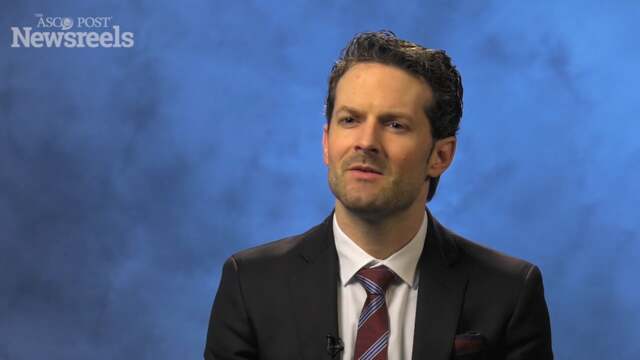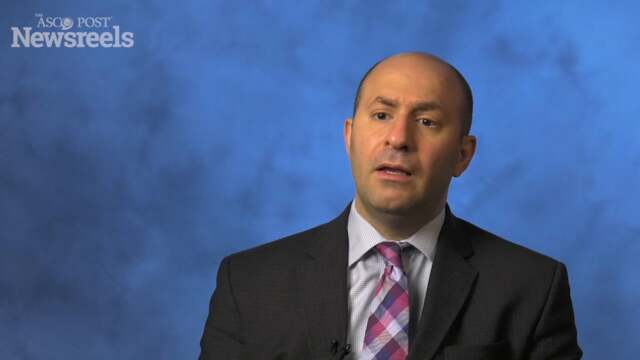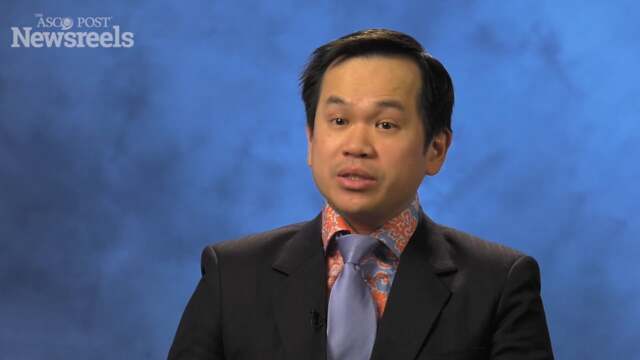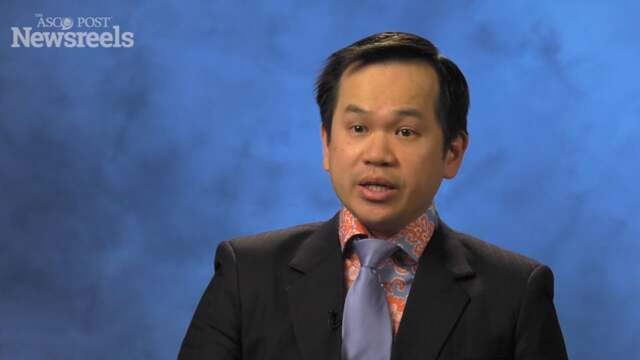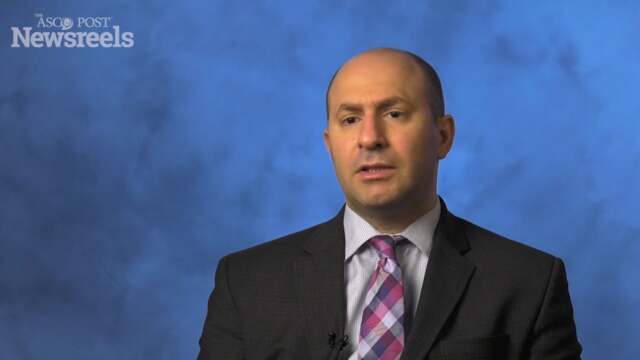Sumanta K. Pal, MD, on Advanced Renal Cancer: Treatment Challenges
2017 Genitourinary Cancers Symposium
Sumanta K. Pal, MD, of the City of Hope, summarizes a session he co-chaired on the opportunities and challenges in systemic therapy for advanced renal cancer, including imaging as a biomarker of response and optimal selection of front-line treatments. (General Session 9)
The
Roland Seiler, MD, of the University of British Columbia, discusses in German a way to identify molecular subtypes of muscle-invasive bladder cancer, the varying responses to cisplatin-based neoadjuvant chemotherapy, and which patients show the most benefit. (Abstract 281)
Toni K. Choueiri, MD, of the Dana-Farber Cancer Institute, discusses study findings on atezolizumab with or without bevacizumab vs sunitinib in patients with untreated metastatic renal cell carcinoma. (Abstract 431)
Paul L. Nguyen, MD, of the Dana-Farber Cancer Institute, discuses an evaluation of the Decipher prostate cancer classifier to predict metastasis and disease-specific mortality from genomic analysis of diagnostic needle biopsy specimens. (Abstract 4)
Paul L. Nguyen, MD, of the Dana-Farber Cancer Institute, summarizes a session he co-chaired, which included discussion of Canadian vs U.S. guidelines; ProtecT; genomic and hereditary tests; and imaging to guide active surveillance. (General Session 1)
Toni K. Choueiri, MD, of the Dana-Farber Cancer Institute, discusses a single-arm biomarker-based study of savolitinib in patients with advanced papillary renal cell cancer. (Abstract 436)
